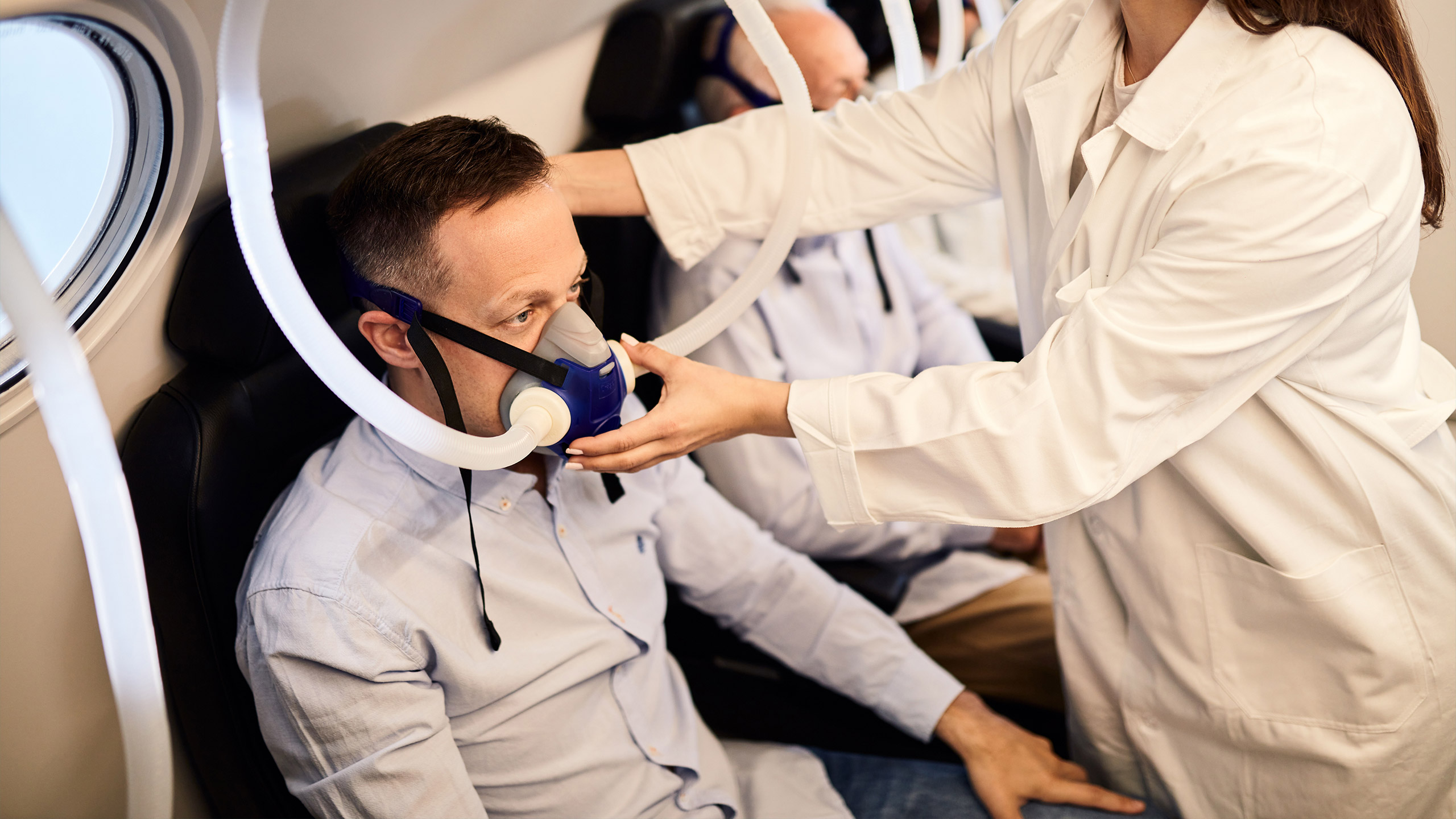For carefree diving enjoyment
The effects of pressure on the human organism are as much a part of diving as the water. Since 1996 , diving and hyperbaric medical care for divers has therefore been one of the main areas of service at the HBO-Center Munich.
Our doctors will advise, examine and support you in your diving sport. All of them have many years of diving experience and are certified as diving and hyperbaric physicians according to the guidelines of the Gesellschaft für Tauch- und Überdruckmedizin e. V. ( GTÜM).
The following examinations and training courses are offered at our center:
Prepare for your next dive
Your diving fitness examination
As a scuba diver, you know, that physical fitness is the basic requirement for our wonderful sport. Do you have enough performance reserves? Let’s find outtogether.
The corresponding examination at the HBO Center Munich includes:
EKG
Exercise electrocardiogram
Pulmonary function test
Ear microscope check and pressure equalization test
Careful collection of personal medical history
(personal medical history)
General physical examination
Diving fitness examination (according to GTÜM) for divers up to 40 years of age > every 3 years, for divers over 40 years > annually
Check your diving fitness now

Treatment after a diving accident
A diving accident or decompression accident can have serious consequences. It is caused by a rapid drop in ambient pressure and is characterized by the characterized by the formation of free gas bubbles in the blood and tissues.
So don’t waste any time, but seek treatment from a diving physician immediately. The HBO Center Munich is your competent point of contact for this.
Our hotline for diving accidents:
+49 89 54 82 31-0
If you contact us outside our office hours, please contact the following contact points:
Emergency hotline of the German Scuba Diving Association:
Emergency hotline aquamed (Medical Helpline Worldwide GmbH):
Hotline of the Divers Alert Network (USA):
First aid by laypersons
First aiders in the event of a diving accident are usually the diving partners. The success of first aid and further treatment therefore depends very much on the the appropriate training of the divers and suitable emergency equipment.
Correct behavior for mild symptoms:
(extreme tiredness, itchy skin “diving fleas”)
- 100 % oxygen supply
- Fluid intake: 0.5–1 liter orally (no hypertonic, alcoholic or caffeinated drinks)
- Prevent further heat loss in the event of hypothermia (ceilings, vapor barrier)
- Orienting neurological examination
- No wet recompression
- if symptom-free within 30 minutes: call a doctor, observe for 24 hours
- if still symptoms after 30 minutes: how to treat severe symptoms.
Correct behavior in case of severe symptoms:
(pain, numbness, paralysis, breathing difficulties, impaired vision, hearing, speech, dizziness, nausea, impaired consciousness)
- Supine position, in case of unconsciousness stable lateral position
- 100 % oxygen administration (start as soon as possible):
- for self-breathing via mask (demand valve or recirculation system with CO2 absorber), if not available: Constant dosing (15–25 ltr./min, reservoir and check valves),
- Insufficient self-breathing: Ventilation with 100 % O2 (ventilation bag with reservoir and constant dosing (15–25 ltr./min) or demand valve or circuit system with CO2 absorber. Oxygen administration without pause until reaching the pressure chamber. Always the highest possible O2 concentration, even with a limited supply, no air mix or constant dosing below 15 ltr./min.
- Fluid administration
- In conscious victims with stable neurology and an intact swallowing reflex , sip 0,5–1 liter of fluid/hour (no hypertonic, alcoholic or caffeinated drinks)
- If the victim is cloudy or has an impaired swallowing reflex: do not allow them to drink